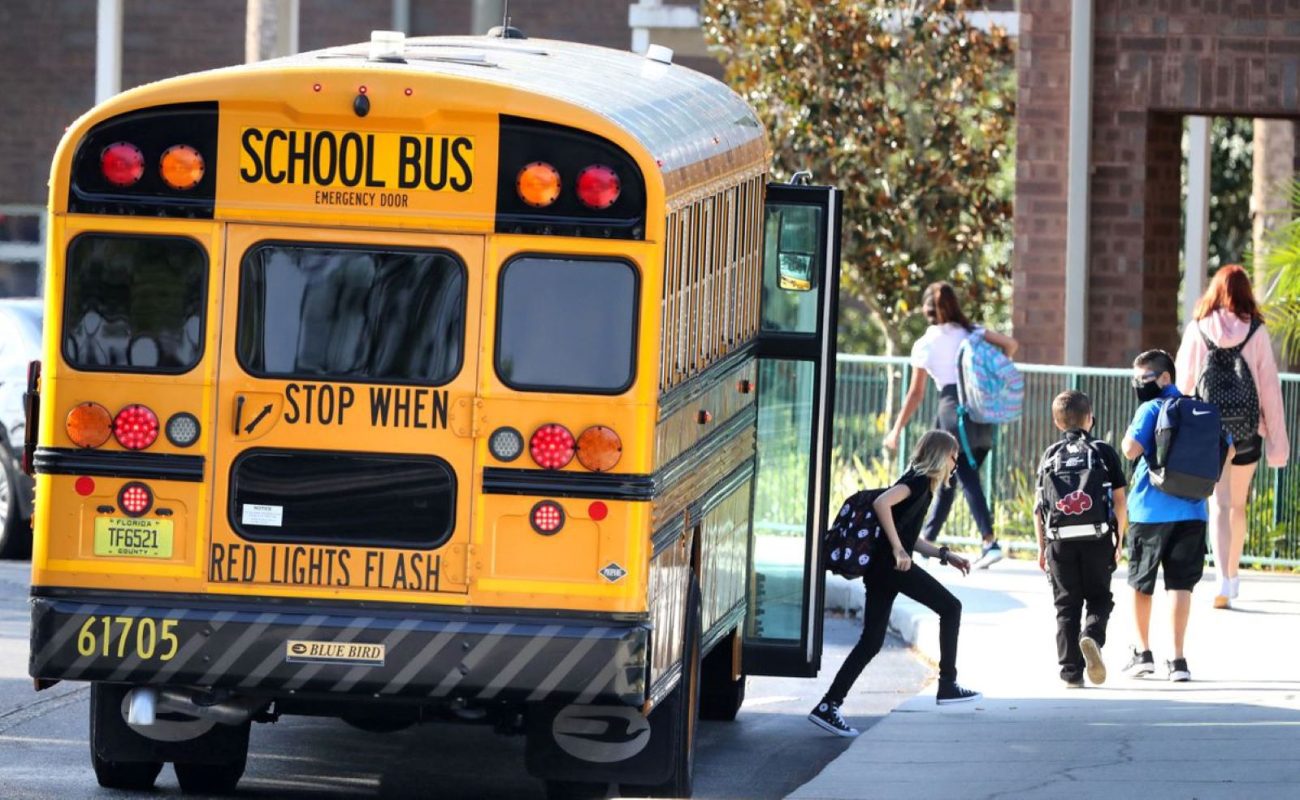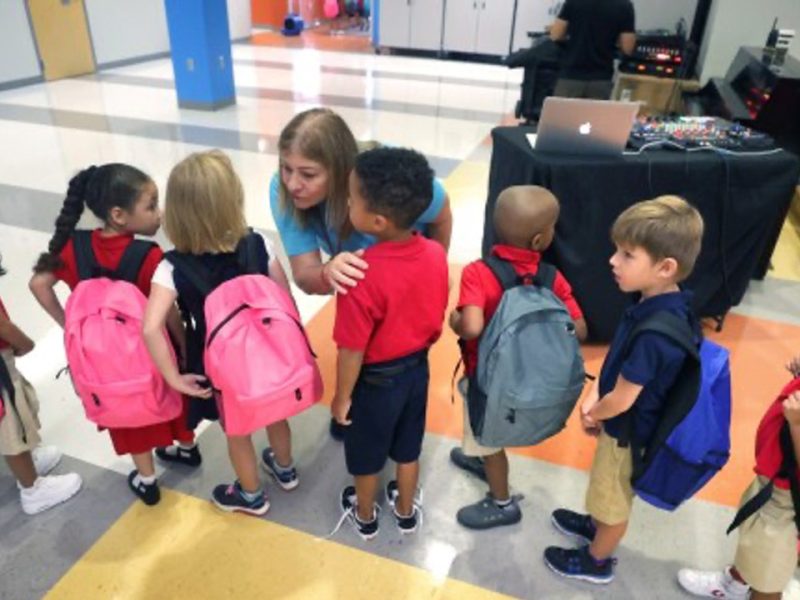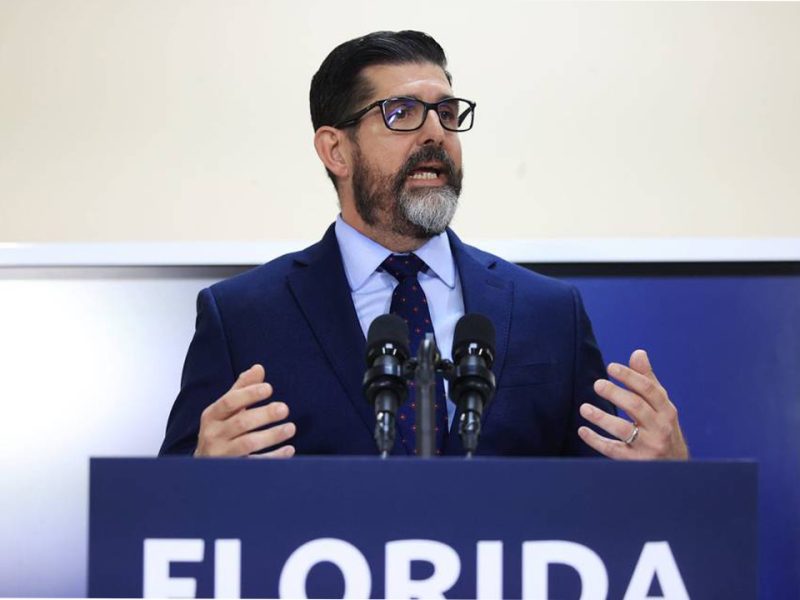Florida education commissioner: Be ‘surgical, not sweeping’ in virus handling in schools
Orlando Sentinel | by Leslie Postal | August 17, 2020
Education Commissioner Richard Corcoran, who ordered Florida’s public schools to open this month, wants the state’s superintendents to be “surgical, not sweeping” if there are coronavirus cases on their campuses and to seek advice from the state before closing schools or classrooms.
“Be very, very surgical, not sweeping,” he told them in a telephone meeting Thursday, according to a recording of the call obtained by the Orlando Sentinel. “Before you get to that point of closing a classroom or closing a school, we’d want to have that communication with you because we want to be a surgical as possible.”
The goal, he said, is to “keep everybody safe” and “keep everybody getting the best possible learning experience.”
The commissioner spoke to superintendents when the first nine of 67 school districts had opened last week.
/cloudfront-us-east-1.images.arcpublishing.com/tronc/HNB6BTKEIRE7XEUZYM67GWZSME.jpg)
Students arrive at South Seminole Middle School in Casselberry, Fla., on the first day of classes for Seminole County Public Schools, Monday August 17, 2020. (Joe Burbank/Orlando Sentinel) (Joe Burbank/Orlando Sentinel)
Seminole County’s public schools started classes today, reporting a smooth opening as both online and in-person classes began. But a teacher at Altamonte Springs Elementary tested positive for coronavirus over the weekend, so both that instructor and a colleague she’d worked with last week, before students were on campus, needed to stay home, and the school had to hire two substitutes, officials said.
Seminole expected about 44% of its students to attend classes on campus while the rest opted to study online from home.
The Orange County school district, which has already started online classes, is to open campuses Friday, though the Orange County School Board will meet later today to discuss a recommendation from its medical advisors that middle and high schools delay their start until Aug. 31. The Lake and Osceola county school systems are to open Aug. 24.
Corcoran, reiterating his position that most children are at low risk of serious problems if they contract the coronavirus, said Florida will be “an example to the rest of the nation” when it opens most of its campuses this month because in-person classes are what most students need.
He acknowledged there will be coronavirus cases at schools but said they don’t need to lead to campus or even class shutdowns. “Don’t panic,” he said.
The state’s reopening order has been controversial, prompting debates and lawsuits from those who say it is not yet safe to open campuses given the spread of the virus in the state. The statewide teachers union, which has sued to stop the order, noted that Martin County’s public schools opened Aug. 11 and by Sunday more than 120 of its students and 12 of its staff faced quarantine because of possible virus exposure.
“The decision to reopen campuses was, unfortunately, a political one instead of a decision informed by science and health experts,” said Fedrick Ingram, president of the Florida Education Association, in a statement.
Lawyers for the union are to attend a mediation session Tuesday in Tallahassee. An attorney for an Orange County teacher and a county mother, who also sued to challenge the order, will be there, too, as the lawsuits have been merged. If mediation is not successful, a court hearing is set for Wednesday.
Corcoran, on the call, called the union lawsuit “frivolous” and said there was more risk for children if schools remained shuttered.
Most children learn best from in-person lessons with their teachers, he said, and that is especially true for those struggling academically or those with disabilities who need therapy in addition to academics. Schools also provide healthy meals, serve as sentinels against child abuse, and offer emotional and social support to youngsters, Corcoran added.
“We’ve got to get kids a great education … because K-12 schools are really the backbone of the United States of America,” he told the superintendents.
He urged the superintendents to “communicate with everybody” if there are potential cases at their schools but don’t assume that buildings or classrooms need to be shuttered. He urged them to contact his top deputies at the Florida Department of Education for advice.
“We’re going to have cases and that’s OK,” he said.
Most school districts already have developed detailed plans for how to mitigate risks of the virus and how to respond to reported cases. Orange’s, for example, is embedded in a 78-page COVID-19 manual. It notes the district will consult with the local health department to determine if a building should be closed and explains all the actions, from tracing student contacts to disinfecting impacted rooms, that must take place after schools are notified of any potential coronavirus case.
On the call, Corcoran praised superintendents for working to open their schools for in-person classes.
“I think we’re going to be an example to the rest of the nation how to do this effectively, how to address the needs of each child really focusing in on closing the achievement gap and having a great semester,” he said.






